The tractor trailer, a cornerstone of modern logistics and transportation, has undergone significant transformations since its inception. As a manufacturer committed to excellence, CarMax Vehicle delves into the rich history of tractor trailers, exploring their origins, advancements, and the pivotal role they play in today’s economy.
Introduction to Tractor Trailers
Tractor trailers, also known as semi-trailers or articulated lorries, are essential for transporting goods across vast distances. Combining a tractor unit with a semi-trailer, these vehicles offer unparalleled flexibility and capacity, making them indispensable in various industries. Understanding the evolution of tractor trailers provides insights into their current design and future innovations.
The Genesis: Early Beginnings of Tractor Trailers
The concept of a tractor trailer can be traced back to the early 20th century. Before their invention, goods were primarily moved using horse-drawn carriages and early motorized vehicles with limited capacity and range.
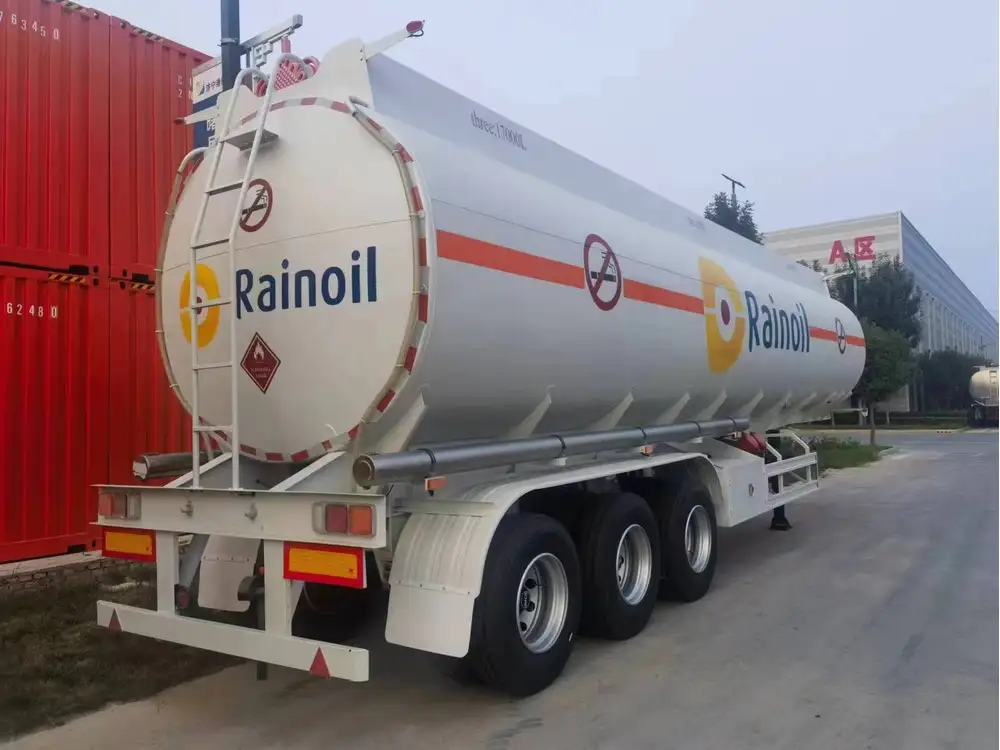
The Pioneering Efforts
- Late 1800s to Early 1900s: The groundwork for tractor trailers was laid with the advent of the internal combustion engine and the development of reliable motorized vehicles.
- 1914: The first recognizable tractor trailer was introduced by the Argentine engineer Juan Atanasio Fernández Suárez. His design featured a powered unit pulling a separate trailer, a concept that would evolve significantly over the decades.
Technological Constraints and Innovations
Early tractor trailers faced numerous challenges, including limited engine power, lack of standardization, and rudimentary suspension systems. Innovators focused on enhancing engine efficiency, developing stronger chassis, and improving load distribution to address these issues.
Key Innovations in Tractor Trailer Development
The journey from the first tractor trailer to the sophisticated models of today involved several key innovations that shaped the industry.
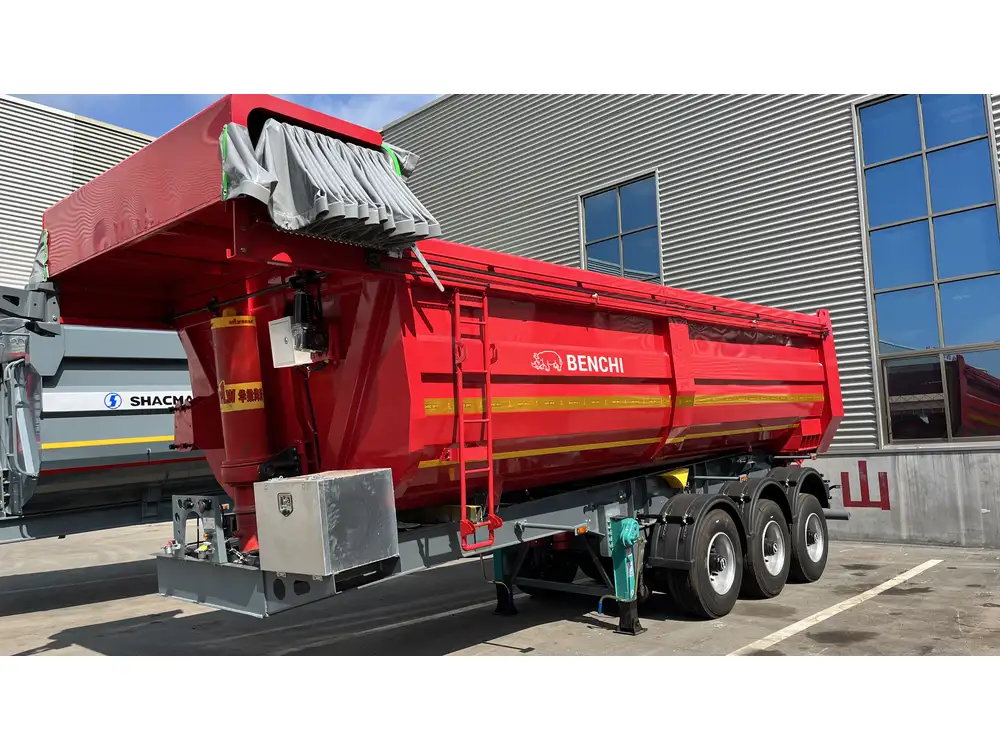
Engine Advancements
- Diesel Engines: The transition from gasoline to diesel engines in the 1920s revolutionized tractor trailers by providing greater torque, fuel efficiency, and longevity.
- Turbocharging and Electronic Controls: Modern engines employ turbocharging and advanced electronic systems to optimize performance and reduce emissions.
Chassis and Suspension Improvements
- Streamlined Chassis Designs: Enhanced chassis designs offer better weight distribution and increased payload capacity.
- Advanced Suspension Systems: Innovations like air suspension and independent suspensions improve ride quality and vehicle stability.
Aerodynamic Enhancements
- Body Design: Streamlined bodies reduce air resistance, leading to improved fuel efficiency and reduced operational costs.
- Accessory Integration: Features such as side skirts, gap reducers, and roof fairings contribute to aerodynamic efficiency.
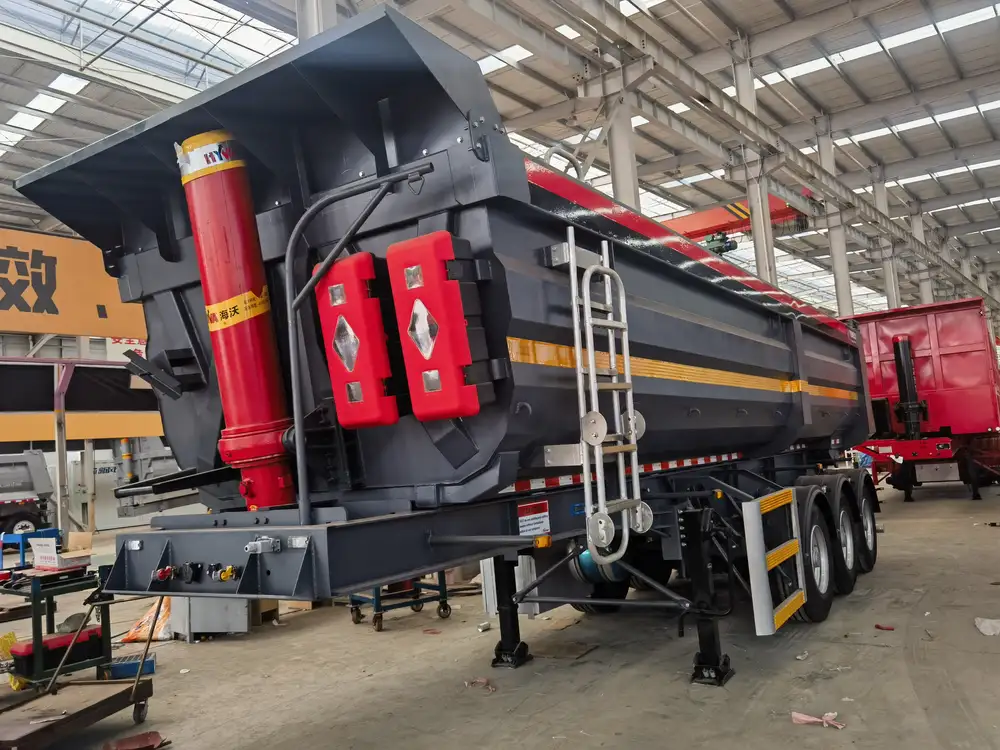
Safety Features
- Advanced Braking Systems: Technologies like anti-lock braking systems (ABS) and electronic stability control (ESC) enhance safety.
- Driver Assistance Systems: Modern tractor trailers are equipped with features like adaptive cruise control, lane-keeping assist, and collision avoidance systems.
CarMax Trailer: Pioneering Modern Semi-Trailers
CarMax Trailer stands at the forefront of tractor trailer manufacturing, blending historical insights with cutting-edge technology to produce reliable and efficient vehicles.
Commitment to Quality and Innovation
- State-of-the-Art Manufacturing: Utilizing advanced manufacturing techniques ensures precision and durability in every trailer produced.
- Research and Development: Continuous investment in R&D allows CarMax Trailer to integrate the latest technological advancements into their products.
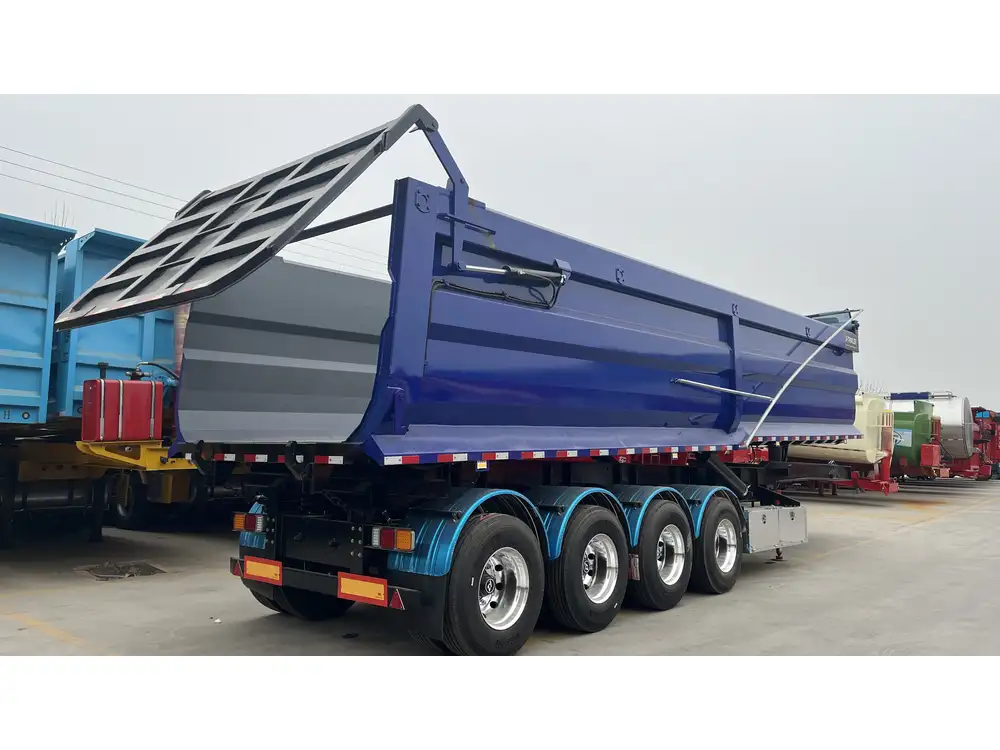
Customization and Versatility
- Tailored Solutions: CarMax Trailer offers customizable options to meet diverse transportation needs, from refrigerated units to flatbeds and tanker trailers.
- Sustainable Practices: Emphasizing eco-friendly materials and energy-efficient designs aligns with global sustainability goals.
Notable Achievements
- Industry Recognition: CarMax Trailer has received numerous accolades for innovation, safety, and performance in the transportation sector.
- Global Reach: With a robust distribution network, CarMax Trailer serves clients worldwide, ensuring prompt delivery and exceptional support.
Comparing Early Tractor Trailers to Modern Designs
The evolution from the first tractor trailer to contemporary models highlights significant advancements in technology, design, and functionality.
| Feature | Early Tractor Trailers | Modern Tractor Trailers |
|---|---|---|
| Engine Type | Early motorized engines | High-efficiency diesel engines |
| Chassis Design | Basic, rigid frames | Streamlined, modular chassis |
| Suspension System | Primitive setups | Advanced air and independent suspensions |
| Aerodynamics | Limited consideration | Optimized body shapes and accessories |
| Safety Features | Minimal safety mechanisms | Comprehensive safety and driver assistance systems |
| Customization | Limited options | Extensive, tailored configurations |
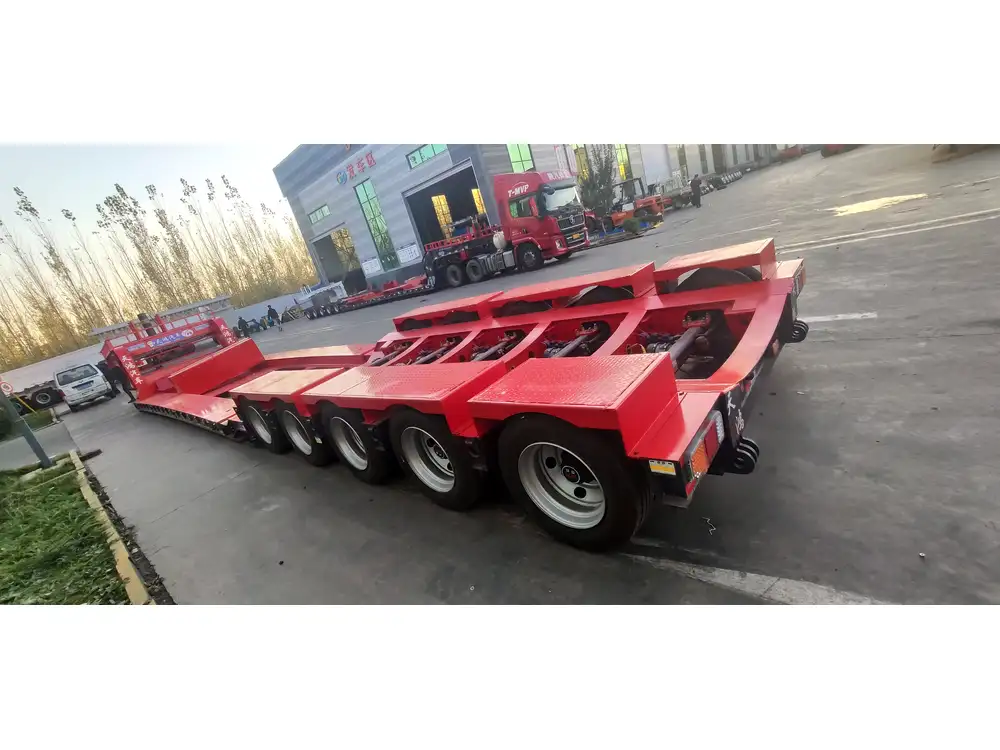
Performance Enhancements
Modern tractor trailers outperform their early counterparts in terms of speed, fuel efficiency, load capacity, and reliability. Innovations in materials science, such as the use of high-strength steel and lightweight composites, contribute to these improvements.
Technological Integration
Today’s tractor trailers are equipped with sophisticated electronics, including GPS navigation, telematics systems, and onboard diagnostics, facilitating efficient fleet management and real-time monitoring.
The Impact of Tractor Trailers on Transportation
Tractor trailers have revolutionized the transportation industry, enabling efficient movement of goods across regions and contributing to economic growth.

Economic Implications
- Supply Chain Efficiency: Enhanced logistics capabilities reduce transportation costs and delivery times, benefiting businesses and consumers alike.
- Job Creation: The tractor trailer industry supports millions of jobs worldwide, from manufacturing and maintenance to driving and logistics management.
Environmental Considerations
- Fuel Efficiency: Advances in engine technology and aerodynamics have significantly improved fuel efficiency, reducing the carbon footprint of transportation.
- Sustainable Practices: Manufacturers like CarMax Trailer are increasingly adopting sustainable materials and processes to minimize environmental impact.
Societal Benefits
- Accessibility: Tractor trailers facilitate the distribution of essential goods, including food, medical supplies, and consumer products, ensuring widespread accessibility.
- Innovation Catalyst: The demands of the transportation industry drive continuous innovation, fostering advancements in related sectors such as materials science and electronics.
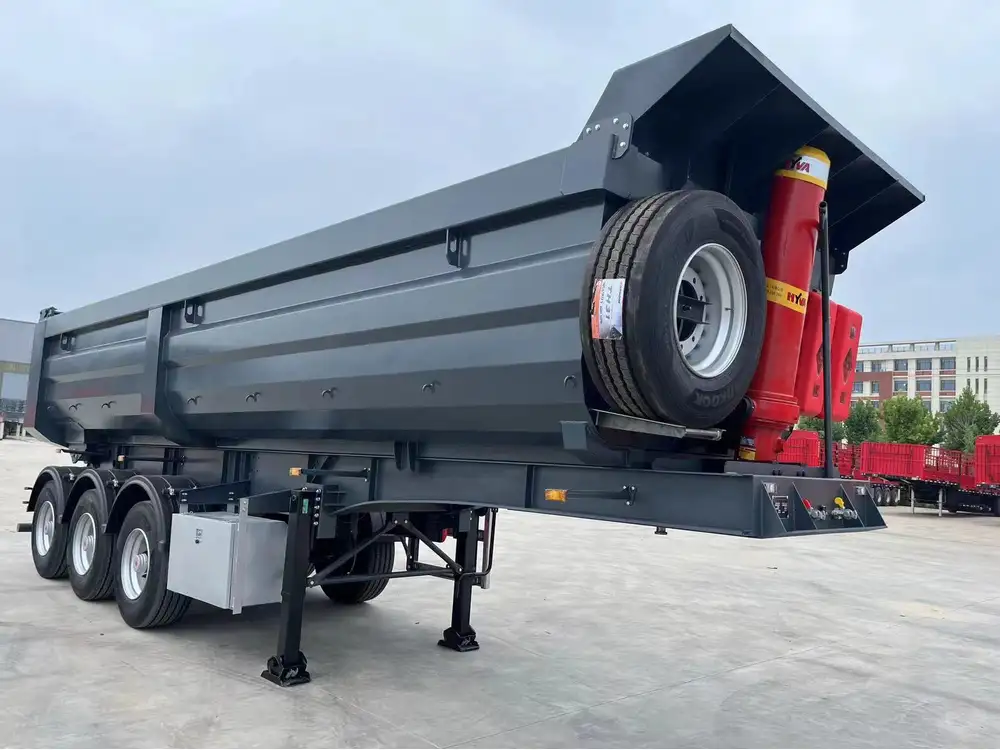
Future Trends in Tractor Trailer Technology
The future of tractor trailers is poised for transformative changes driven by technological advancements and evolving market demands.
Autonomous Driving Technologies
- Self-Driving Capabilities: Integration of autonomous technologies promises increased safety, reduced driver fatigue, and enhanced efficiency in freight transportation.
- Regulatory Developments: Ongoing research and policy-making will shape the adoption and implementation of autonomous tractor trailers.
Electrification and Alternative Fuels
- Electric Semi-Trailers: Transitioning to electric powertrains aims to reduce emissions and reliance on fossil fuels, aligning with global sustainability goals.
- Alternative Fuels: Innovations in hydrogen fuel cells and biofuels offer potential pathways for greener transportation solutions.
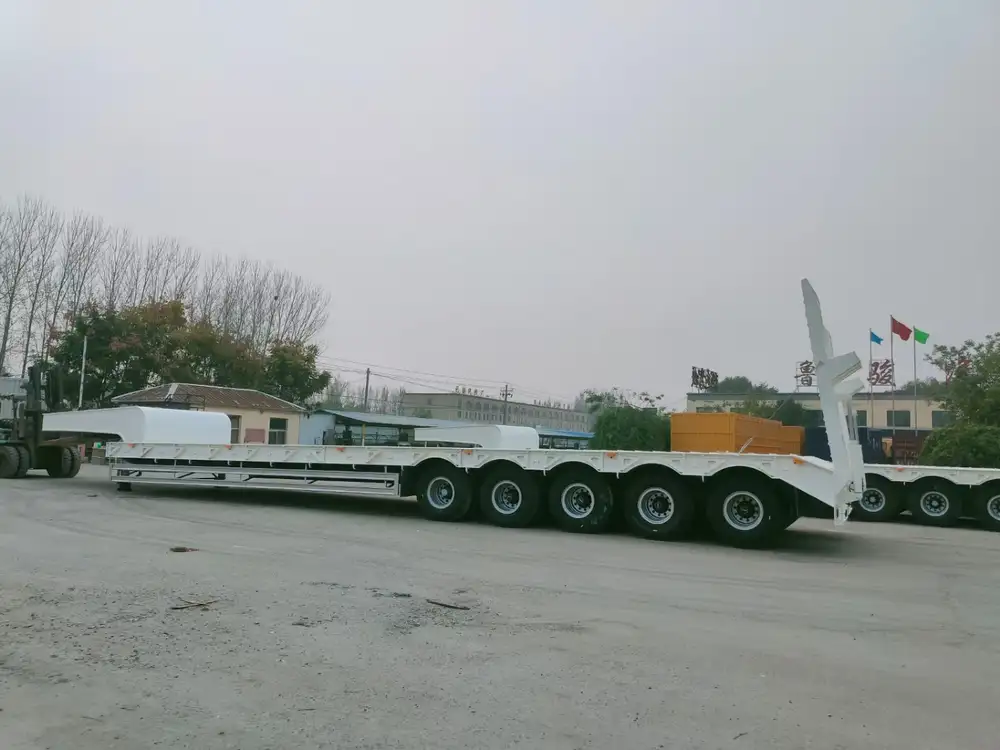
Connectivity and IoT Integration
- Smart Trailers: Enhanced connectivity through the Internet of Things (IoT) enables real-time tracking, predictive maintenance, and optimized route planning.
- Data Analytics: Leveraging big data and artificial intelligence facilitates informed decision-making and operational efficiencies in fleet management.
Enhanced Safety Features
- Advanced Driver Assistance Systems (ADAS): Continued advancements in ADAS will further improve safety, including features like automated braking, lane departure warnings, and collision avoidance.
- Structural Innovations: Improvements in trailer design and materials will enhance crashworthiness and occupant protection.
Customization and Modular Designs
- Flexible Configurations: Future tractor trailers will offer more modular and adaptable designs to cater to a broader range of transportation needs.
- User-Centric Innovations: Emphasizing driver comfort and functionality, such as ergonomic cabins and intuitive control systems, will enhance the overall user experience.
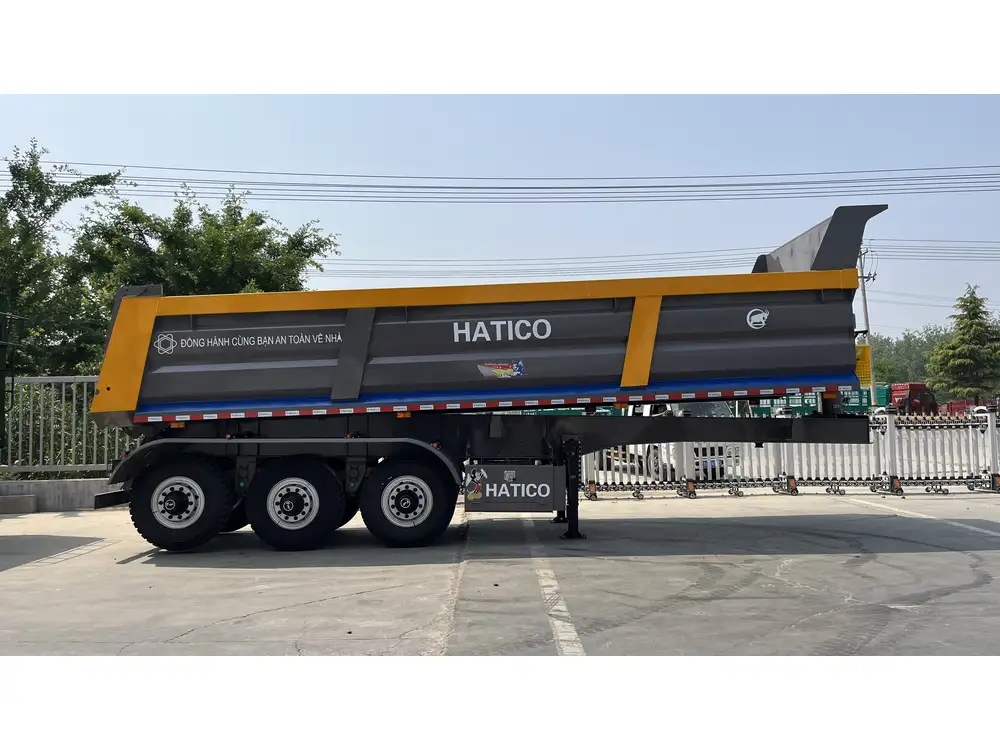
Conclusion: The Legacy of Tractor Trailer Invention
From humble beginnings to modern marvels, tractor trailers have played an integral role in shaping the landscape of transportation and logistics. CarMax Vehicle continues to honor this legacy by producing state-of-the-art trailers that embody the industry’s rich history and forward-looking innovations. As we advance into an era of autonomous driving, electrification, and smart technologies, the tractor trailer remains a testament to human ingenuity and the relentless pursuit of progress.
Frequently Asked Questions
When was the first tractor trailer invented?
The first recognizable tractor trailer was introduced in 1914 by Argentine engineer Juan Atanasio Fernández Suárez, marking the beginning of the tractor trailer era.

How have tractor trailers evolved over the years?
Tractor trailers have evolved from basic motorized vehicles with limited capacity to sophisticated, high-efficiency machines equipped with advanced safety features, aerodynamic designs, and intelligent technology integrations.
What role does CarMax Vehicle play in the tractor trailer market?
CarMax Vehicle is a leading manufacturer of semi-trailers, known for its commitment to quality, innovation, and customization. The company leverages advanced manufacturing techniques and continuous research to produce reliable and efficient tractor trailers for diverse transportation needs.
What are the key advancements in modern tractor trailers?
Key advancements include high-efficiency diesel engines, streamlined chassis designs, advanced suspension systems, comprehensive safety features, aerodynamic enhancements, and the integration of smart technologies like GPS and telematics.

What is the future of tractor trailers in the transportation industry?
The future of tractor trailers lies in autonomous driving technologies, electrification, alternative fuels, enhanced connectivity through IoT, advanced safety systems, and modular, user-centric designs, all aimed at increasing efficiency, sustainability, and safety in freight transportation.



